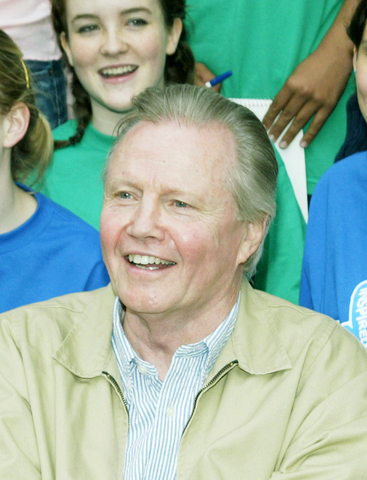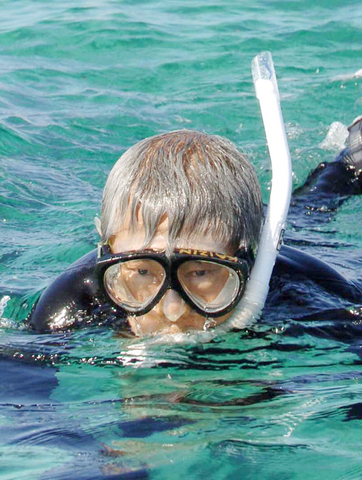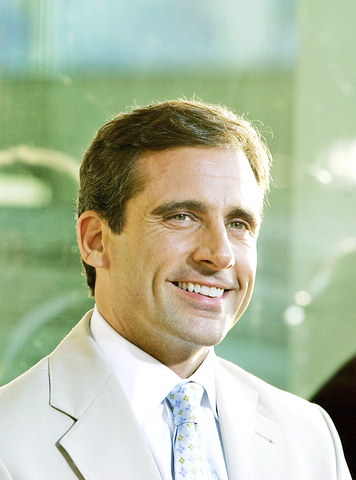The South Korean film star Song Hye-kyo is preparing to sue three Vietnamese newspapers for libel for alleging she was arrested in possession of drugs, Tien Phuong newspaper has reported. One of the papers' editors blamed the mistake on a part-time translator who had sourced the story from a Taiwanese Web site.
Lawyers for the 23-year-old actress sought South Korean embassy assistance in filing lawsuits against Vietnamese state-run media outlets Phap Luat Thanh Pho (in English, Ho Chi Minh Law) and the online news agencies Hanoimoi and Vietnamnet.
The legal action involves an August story alleging the actress was stopped and arrested at Hong Kong airport with 50 ecstasy tablets.

PHOTO: AP
The Ho Chi Minh Law newspaper published a letter of apology in English after being informed of the intended lawsuit.
The family of late Ugandan dictator Idi Amin has threatened to sue the producers of the The Last King of Scotland, the film version of the acclaimed novel about the notorious despot's rule.
Amin's eldest son, Taban Amin, said the family might sue for defamation but at least deserved millions in compensation for the depiction of his father in the movie which wrapped up on-location shooting in Uganda earlier this month.

PHOTO: AP
He said the family -- consisting of his prolific father's 42 children and several widows -- would seek US$4 to US$5 million from Cowboy Films, which is producing Last King with Hollywood star Forest Whitaker as Idi Amin.
"These actors have been depicting my father as eating people," Amin said, referring to persistent allegations of cannibalism leveled at the dictator. "I was with him for many years, but I never saw any human flesh."
The title refers to Amin's stated desire to take over from Britain's Queen Elizabeth II as monarch to the Scots, and the film tells the story of Scottish doctor Nicholas Garrigan, who becomes Amin's physician.

PHOTO: AP
Tokyo Governor Shintaro Ishihara, an outspoken Japanese nationalist, has penned a movie script about the lives of kamikaze pilots in World War II and will be the film's executive producer, Kyodo news agency said.
Ishihara, a novelist before he entered politics, has a penchant for making provocative statements.
Japan has lately seen the release of a string of war films that some analysts say reflect rising nationalism 60 years after its 1945 surrender.
The image of John Paul II returned late Tuesday to the window of Krakow Bishops' Palace from which he addressed his former diocese on visits to his native Poland.
The late pope is being played by American actor Jon Voight in a film on Karol Wojtyla's life, scenes for which are being shot in Krakow, Polish news agency PAP reported.
The television film, a combined US-Italian-Polish production, is part of a series on key 20th century historical figures.
The 40-Year-Old Virgin, starring Steve Carell as a middle-aged virgin looking for love, debuted in first place at North American box offices this weekend with ticket sales of US$21.4 million, final figures showed Monday.
Carell stars as Andy Stitzer, a stockroom worker whose virginity is discovered by colleagues who then try to find him a soul mate.
Red Eye, directed by horror maestro Wes Craven, opened in second place on US$16.1 million in sales with a tale of a woman kidnapped by a stranger on a flight and threatened with the murder of a father, according to California-based Exhibitor Relations Co Inc.
Last week's number-one Four Brothers fell to the third spot on ticket sales of US$12.4 million, while the comedy Wedding Crashers was ranked fourth with takings of US$8 million.
The Skeleton Key was in fifth place with US$7.7 million, followed by March of the Penguins in sixth with US$6.4 million and then Valiant, with sales of US$5.91 million.
Rounding out the top 10, The Dukes of Hazzard garnered US$5.98 million in eighth spot; Charlie and the Chocolate Factory earned US$4.4 million in ninth, and Sky High ranked tenth with sales of US$4 million.

May 18 to May 24 Pastor Yang Hsu’s (楊煦) congregation was shocked upon seeing the land he chose to build his orphanage. It was surrounded by mountains on three sides, and the only way to access it was to cross a river by foot. The soil was poor due to runoff, and large rocks strewn across the plot prevented much from growing. In addition, there was no running water or electricity. But it was all Yang could afford. He and his Indigenous Atayal wife Lin Feng-ying (林鳳英) had already been caring for 24 orphans in their home, and they were in

On May 2, Chinese Nationalist Party (KMT) Chairman Eric Chu (朱立倫), at a meeting in support of Taipei city councilors at party headquarters, compared President William Lai (賴清德) to Hitler. Chu claimed that unlike any other democracy worldwide in history, no other leader was rooting out opposing parties like Lai and the Democratic Progressive Party (DPP). That his statements are wildly inaccurate was not the point. It was a rallying cry, not a history lesson. This was intentional to provoke the international diplomatic community into a response, which was promptly provided. Both the German and Israeli offices issued statements on Facebook

Even by the standards of Ukraine’s International Legion, which comprises volunteers from over 55 countries, Han has an unusual backstory. Born in Taichung, he grew up in Costa Rica — then one of Taiwan’s diplomatic allies — where a relative worked for the embassy. After attending an American international high school in San Jose, Costa Rica’s capital, Han — who prefers to use only his given name for OPSEC (operations security) reasons — moved to the US in his teens. He attended Penn State University before returning to Taiwan to work in the semiconductor industry in Kaohsiung, where he

Australia’s ABC last week published a piece on the recall campaign. The article emphasized the divisions in Taiwanese society and blamed the recall for worsening them. It quotes a supporter of the Taiwan People’s Party (TPP) as saying “I’m 43 years old, born and raised here, and I’ve never seen the country this divided in my entire life.” Apparently, as an adult, she slept through the post-election violence in 2000 and 2004 by the Chinese Nationalist Party (KMT), the veiled coup threats by the military when Chen Shui-bian (陳水扁) became president, the 2006 Red Shirt protests against him ginned up by